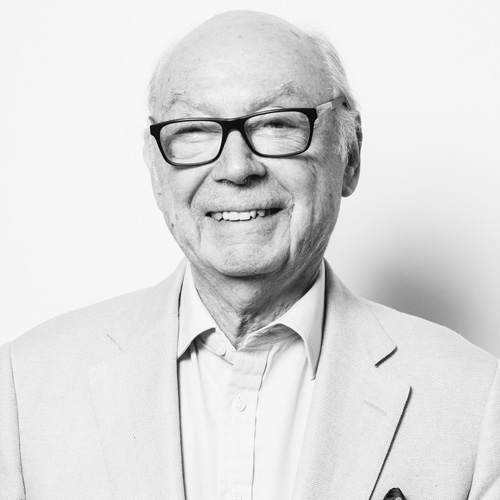This website uses cookies
We use cookies to ensure that we give you the best experience on our website. If you continue to use this site we will assume that you are happy with it.
When Frederic A. Rubinstein ’55 graduated from Cornell Law School, going into public service wasn’t going to make you fabulously wealthy. But, he recalls, attorneys could expect roughly the same starting salary whether they joined one of the blue-chip law firms or the SEC.

Frederic A. Rubinstein ’55
Needless to say, that isn’t the case anymore. The combination of student loans and the comparatively modest salaries new lawyers make at government and non-profit jobs can leave potential do-gooders eyeing the public sector.
Rubinstein is helping to change that equation. He is giving $1 million to the Law School to establish the Frederic and Susan Rubinstein Fund for the Public Interest Low Income Protection Plan. The PILIPP program provides financial support to Law School graduates who work in public-interest careers, offering grants to assist with loan repayment.
“The Cornell Law School fellowship is based on my concern and my wife’s concern that we see very few people going into public service,” Rubinstein said. “I would hope that particularly in today’s cultural and political environment, more people would become conscious of the need for all responsible citizens to join in and to do what they can to ameliorate the situation.”
Rubinstein, now a partner at Kelley Drye & Warren, graduated from Cornell University with an A.B. in 1953, and received his LL.B. from Cornell Law School. He went on to a long career in corporate law, representing both investors and entrepreneurs in the tech sector.
Part of Rubinstein’s concern with strengthening civil society comes from his personal history. Born into a Jewish family in Antwerp, they fled to France in 1940 when the Germans invaded Belgium. Rubinstein’s family ended up living in Nice under the Vichy regime, until they finally secured visas in May 1942 to emigrate to the U.S.
“The visas were issued within a few days of our being told that we were scheduled to be moved to an internment camp,” he recalled. “So we literally left France two days before being interned in a camp from which internees were ultimately sent to Auschwitz. Those things obviously resonate still with me.”
“As a refugee from Nazi-occupied Belgium and Vichy France, it’s something that concerns me particularly,” Rubinstein added. “The tremendous increase in prejudice against Muslims, as well as anti-Semitism, is a cause of concern for me. And so I’m hoping to see people going into philanthropic areas to address those concerns.”
Rubinstein’s gift to the Law Schools’ PILIPP program is paired with a separate donation of $1 million to Cornell Tech, aimed at supporting entrepreneurs who want to create businesses that will provide health or educational benefits to society.
Eduardo M. Peñalver, the Allan R. Tessler Dean and Professor of Law, notes that Rubinstein’s donation to the Law School furthers an ongoing push to reduce financial barriers for all Cornell Law students. “Over the past few years, we have worked hard to constrain the growth in tuition, and we have more than doubled our spending on financial aid. As a result, the debt of our students at graduation has dropped by about a third,” Peñalver said. “But for students who want to work in public service, even these reduced debt loads can present a hardship. Gifts like the Frederic and Susan Rubinstein Fund for the Public Interest Low Income Protection Plan ensures that all of our students have the option to pursue their passion for public service.”